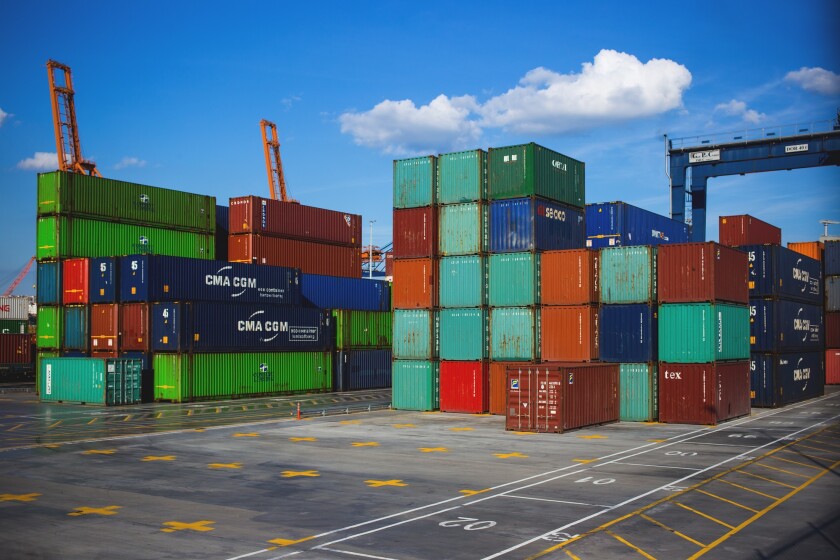Incentives for imported goods related to the COVID pandemic
The Indonesian Ministry of Finance (MoF) has issued Regulation No. 164/PMK.04/2022 (‘PMK-164’) as the fourth amendment of MoF Regulation No. 34 /PMK 04 2020 (‘PMK 34’). The facilities provided are the same as in PMK-34 (i.e., exemption from import duties, Article 22 import tax, and VAT/luxury goods sales tax not collected), but PMK-164 updates the list of goods which qualify for the facilities by adding several drugs and excluding several types of equipment.
PMK-164 also updates the tariff posts for commodities eligible to benefit from facilities, which are now based on the 2022 version of the Harmonized Commodity Description and Coding System, and the Association of Southeast Asian Nations’ Harmonised Tariff Nomenclature goods classification system.
Applications for facilities before the enforcement of this new MoF regulation will be processed in accordance with the previous MoF regulation (MoF-92), provided that:
The customs import notification has obtained the number and date of the arrival notification documents or inward manifests (BC 1.1); or
The customs goods release notification from bonded logistic centres, free-trade areas, bonded areas, bonded warehouses, special economic zones, and companies that have received export-oriented import facilities through the KITE exemption, as discussed in this article on ITR, has obtained the registration number and date from the relevant customs office.
This regulation became effective on November 14 2022.
Imported goods quota for goods subject to free or discounted import duty
The Director General of Customs and Excise has issued Regulation No. PER-10/BC/2022 (‘PER-10’) regarding a reduction in the import quota for goods that benefit from import facilities, which became effective on December 7 2022.
The quota cut applies to imports and/or a goods release which obtain facilities of exemption, import duty relief, or duty borne by the government which are performed by importers and entrepreneurs operating in bonded storage areas, special economic zones, and free-trade zones or free ports. This covers the importation of goods such as those that are related to government projects, certain capital goods, and public facilities.
The cut will be implemented through an electronic platform, although a manual method through the integrated system or the customs office may be implemented if the system is experiencing technical difficulties or errors. Specific administration and reporting procedures shall be performed by the customs authority in this regard.
Customs value for import duty calculation
On October 18 2022, the MoF issued Regulation No. 144/PMK.04/2022 (‘PMK-144’) concerning Customs Values for Import Duty Calculation, which revokes MoF Regulation No. 160/PMK.04/2010 as most recently amended by No. 62/PMK.04/2018. The objectives of the changes, which became effective on January 1 2023, are to:
Provide more legal certainty in the framework of determining customs value;
Improve services and supervision in the customs sector; and
Maximise the utilisation of information technology systems in business processes in the customs sector.
The main changes in this regulation are as follows.
Transaction value (method I)
The new regulation provides greater clarity on the insurance as part of the transaction value by mentioning “Insurance Costs for the transportation of imported goods to the destination port of import in the Customs Territory”, while previously it only mentioned “Insurance Cost”.
There is an additional cost that should be added into the price actually paid or the price that should be paid (transaction value); i.e., a guarantee fee as a condition of sales.
There is an additional cost that should not be included in the price actually paid or the price that should be paid; namely, Internal tax costs in the exporting country.
Transaction value of identical goods (method II) and similar goods (method III)
The transaction value of identical goods and/or similar goods used as the basis for determining customs value should fulfil additional requirements, such as using the same mode of transportation.
There is an additional exception for import declaration (PIB) fulfilment criteria; i.e., not filed by the same importer, except importers that have been designated as a main partner of customs or an authorised economic operator.
There is clarity regarding PIBs that can be used as a comparison of identical and/or similar goods in that a PIB registered at another customs office can now be used.
Fallback method
The fallback method may use data from outside the customs territory, provided that the data is available within the customs territory and is based on objective and measured data.
New procedures for a customs value declaration
Previously, the importer was required to submit a customs value declaration if there was a customs value information inquiry issued by the customs office (after the registration of a PIB). The new regulation stipulates that the Importer or the owner of the goods shall voluntarily declare the customs value in the PIB.
The customs office will conduct a risk assessment on the customs value declared by the importer.
Customs value examination
The customs officer examines the declared customs value in the import declaration, and based on the result of the risk assessment, the customs officer may:
Issue a request for data and/or documents in the case of requiring additional proof or objective and measured data;
Issue a customs value confirmation; and
Access information related to an import transaction, financial information, etc. by using data or an application at the Directorate General of Customs and Excise or another relevant department.
The importer and/or the owner of goods must submit the additional proof or objective and measured data within three working days after the data and/or document request is issued. The importer and/or the owner of goods must attend the customs value confirmation within three working days after the customs value confirmation is issued.
If the importer and/or the owner of goods does not submit the additional proof or objective and measured data or attend the customs value confirmation within three working days, the customs officer will use all information available at the Directorate General of Customs and Excise or another relevant department for the customs value examination.
Customs value stipulation by the customs officer
The customs officer determines customs values based on:
The risk assessment result;
A customs value examination;
A request for data and/or documents for additional proof or objective and measured data;
The customs value confirmation result; and/or
Another customs value examination result.
A final point
Considering the fundamental changes in the approach towards customs value determination, it is highly recommended that any parties concerned revisit their internal procedures regarding import administration, because there may be components which should be reconsidered in determining a customs value.
GNV Consulting Services’ customs team would be more than happy to assist in this regard.
Click here to read about changes to the Indonesian regulation concerning the procedures for the preliminary investigation of criminal acts in taxation.













